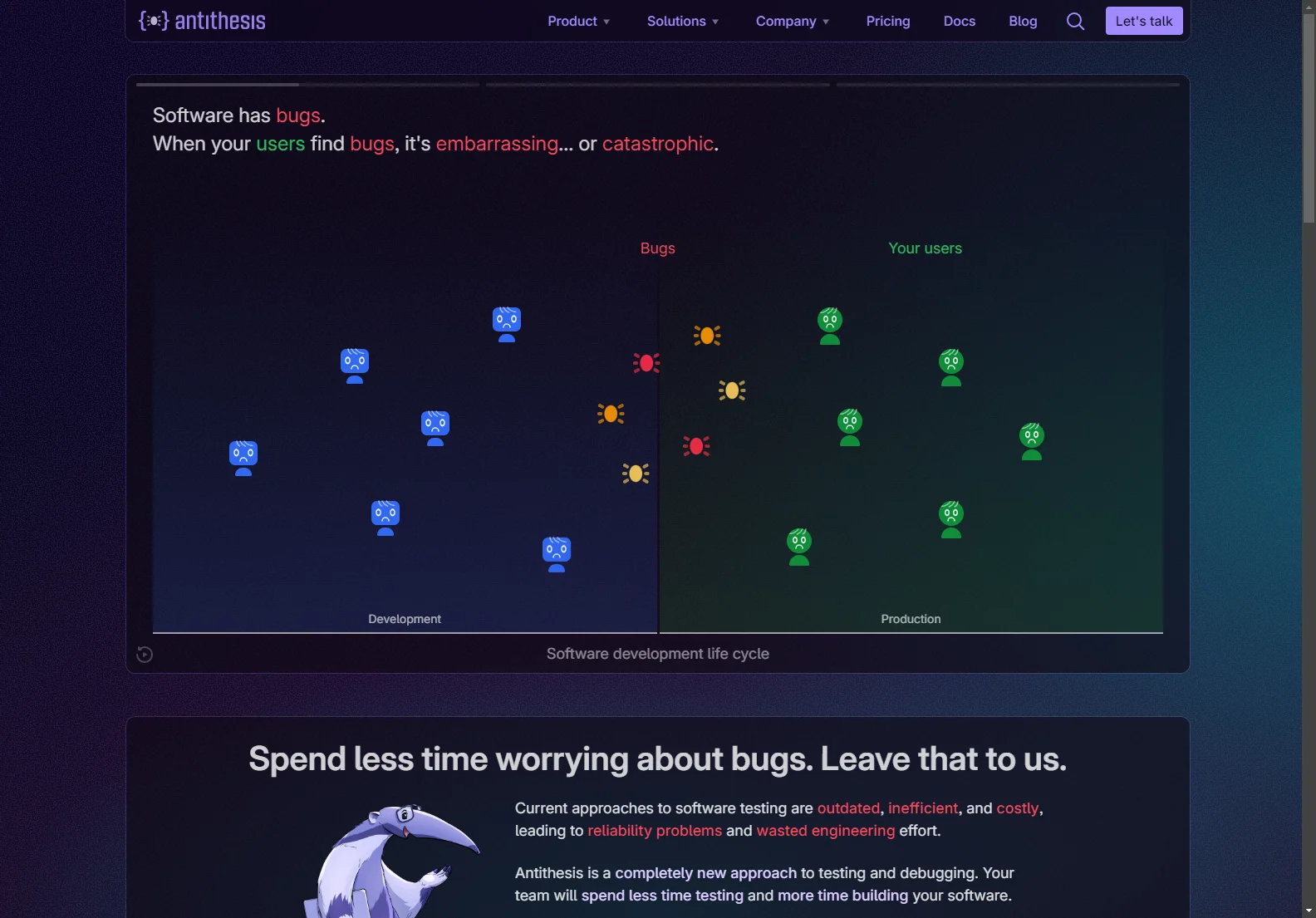Antithesis: Autonomous Software Testing
Antithesis offers a revolutionary approach to software testing and debugging, eliminating the inefficiencies and high costs associated with traditional methods. Its deterministic testing environment ensures perfect reproducibility of bugs, saving engineering teams valuable time and resources. Unlike conventional automated testing, which primarily identifies anticipated problems, Antithesis explores software in novel ways, uncovering unknown unknowns and significantly enhancing software reliability.
Key Features
- Perfect Reproducibility: Antithesis's deterministic environment guarantees that every discovered bug is consistently reproducible, simplifying the debugging process.
- Uncovering Unknown Unknowns: It goes beyond anticipated problems, discovering unforeseen issues that manual testing often misses.
- Efficient Debugging: The platform provides detailed reports summarizing all identified bugs, enabling quick resolution.
- Continuous Testing: Antithesis continuously monitors software for problems, providing immediate feedback and preventing issues from escalating.
- Integration with Existing Workflows: Seamlessly integrates with existing development workflows, minimizing disruption.
Benefits
- Reduced Testing Time: Spend less time on testing and more time building software.
- Improved Software Reliability: Identify and resolve bugs before they impact users.
- Cost Savings: Reduce the financial burden associated with traditional testing methods.
- Enhanced Development Efficiency: Streamline the development lifecycle and accelerate time to market.
- Increased Confidence: Gain greater confidence in the quality and reliability of your software.
How Antithesis Differs from Traditional Methods
Traditional automated testing often relies on pre-defined tests that may not uncover all potential issues. Antithesis, on the other hand, uses a novel approach to explore the software's state space, identifying bugs that would be missed by conventional methods. This makes it particularly effective for complex systems where traditional testing falls short.
Case Studies
Several companies have successfully used Antithesis to improve their software development processes. These case studies highlight the significant time and cost savings achieved, along with the enhanced reliability of their software.
- Case Study 1: A company reduced its testing time by 75% using Antithesis.
- Case Study 2: Another company discovered and fixed critical bugs that would have otherwise gone unnoticed, preventing costly production issues.
Conclusion
Antithesis represents a significant advancement in software testing. Its unique approach to identifying and reproducing bugs offers substantial benefits to software development teams, leading to improved efficiency, reduced costs, and increased confidence in software quality.

